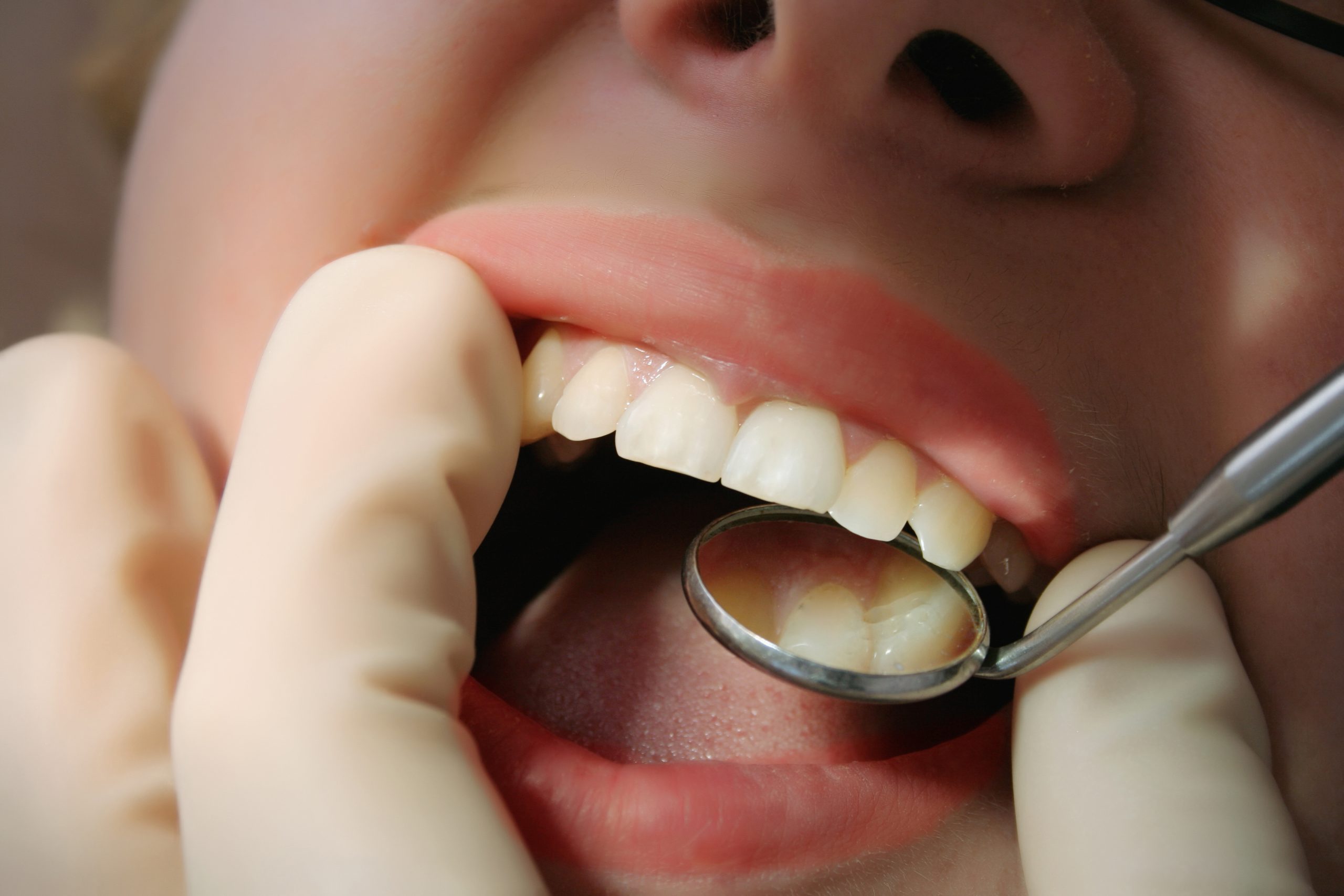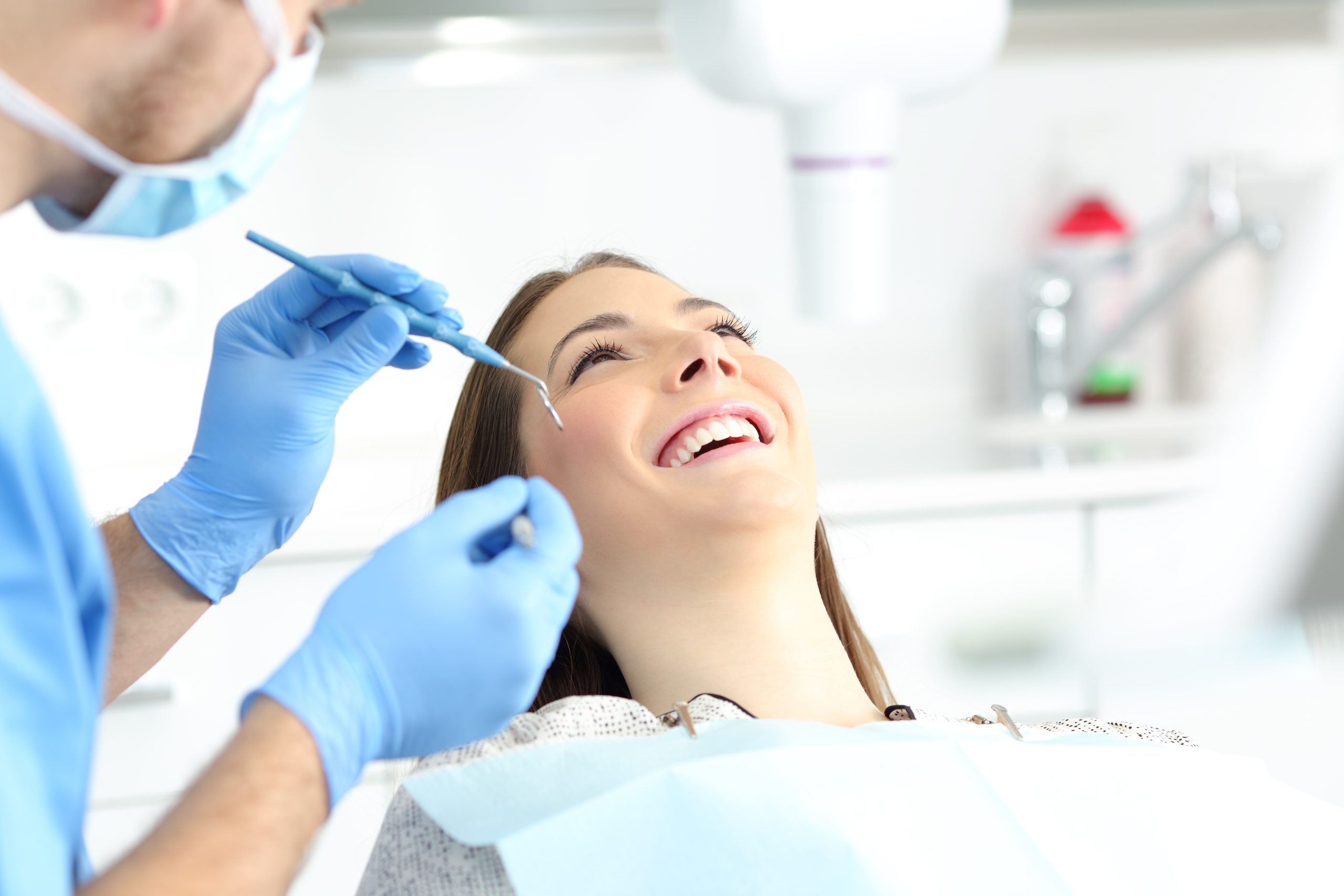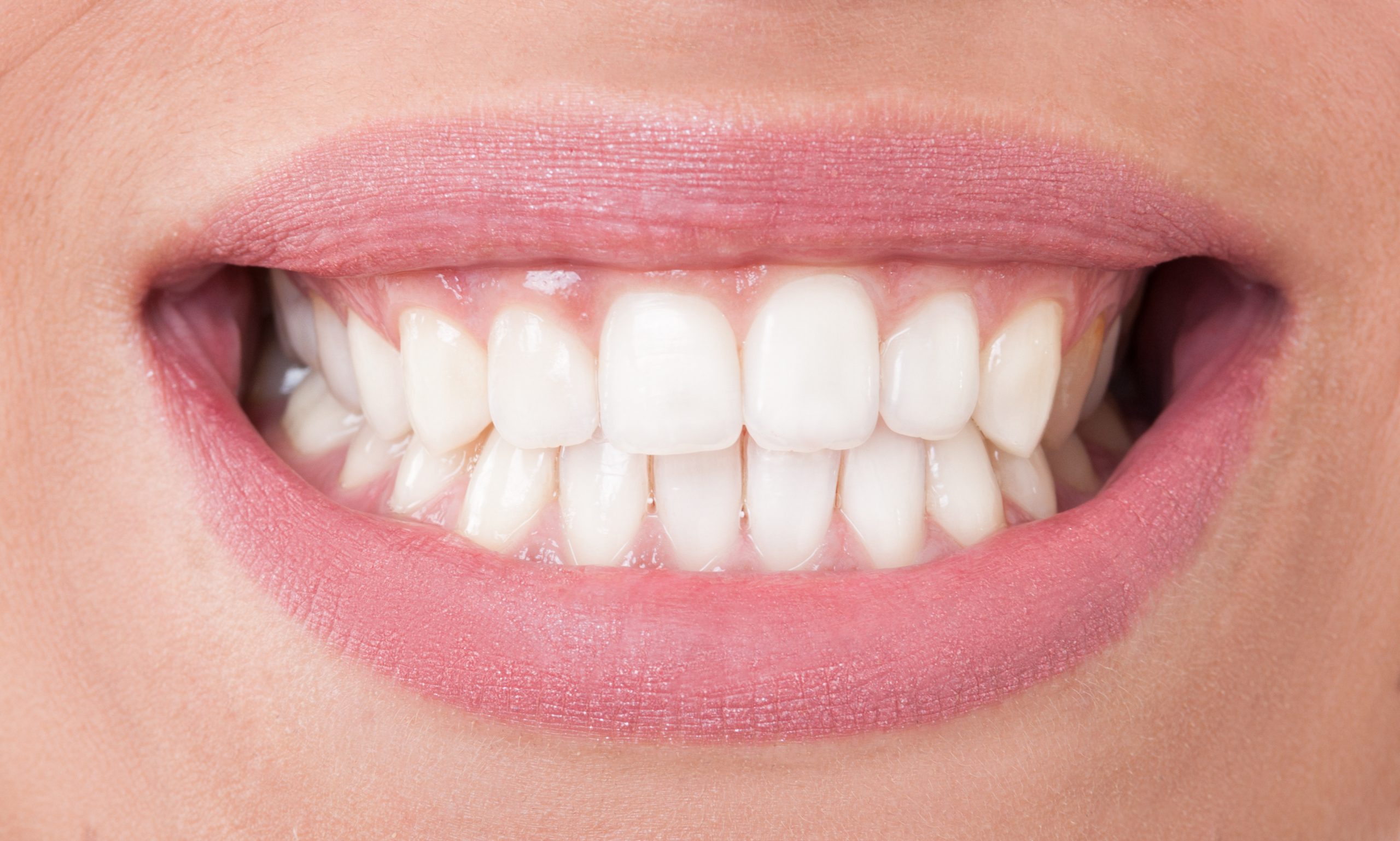
It’s widely known that one of the most important things you can do to improve your oral health is to schedule a dental exam. These visits can detect early gum disease. Without prompt action, this condition can cause severe health complications.
Read on to learn more about the importance of dental exams and early gum disease detection so you can maintain healthy gums, a beautiful smile, and a vibrant life.
How Gum Disease Affects Your Mouth
Gum disease, also known as periodontal disease, is a result of harmful bacterial buildup around your teeth and gums. This condition begins as gingivitis, a milder form typically limited to gum irritation. However, if your at-home dental care is insufficient and you’re not getting regular cleanings, gingivitis may progress into periodontitis. Periodontitis occurs when there is breakdown of the bone around your teeth.
This bone loss is irreversible, which may lead to loosening or loss of teeth. Damage to the bone and gums that support teeth may make it even more difficult to keep your teeth clean. That’s why it’s critical to be proactive with your oral hygiene at home and see your dentist regularly for dental cleanings and exams. Once gum disease has progressed to an advanced stage, it’s much more difficult to return to a healthy mouth, and you may start losing teeth.
The Benefits of Dental Exams and Early Gum Disease Detection
After reviewing the devastating effects that gum disease can have on your oral health, let’s now look at the benefits of dental exams and early gum disease detection.
Stop Gum Disease Before It Starts

One major advantage of having a regular checkup with your dentist is that they can help reduce your risk of developing gum disease before it has a chance to start. Although you may have an excellent at-home oral care routine, you will not be able to remove plaque that has hardened into tartar, a substance so stubborn that no toothbrush or floss can remove it effectively. Additionally, some people are more genetically susceptible to developing gum disease. This means that certain people with perfect home dental care may still experience bone loss despite doing everything right.
Professional dental cleanings remove plaque and tartar, the aggravating bacterial buildup that you can’t remove at home. Without these cleanings, plaque and tartar can trigger inflammation and bleeding in the gums, setting the stage for periodontal disease. By scheduling routine exams, you can keep plaque accumulation under control, which eliminates one of gum disease’s primary causes.
Catch Gum Disease Early
Visiting your dentist will also gives them the opportunity to catch gum disease early. Although some symptoms you experience may seem mild, your dentist can recognize potential red flags far earlier than you may.
Spotting gum disease during its initial stages means treatment will be more effective and less invasive. You can often address gingivitis with improved oral hygiene and professional cleanings. When identified early enough, the disease has minimal time to damage gum tissue or jeopardize tooth stability.
Save Your Teeth

As mentioned above, periodontitis erodes the structures that anchor teeth, such as the ligaments and bones beneath the gums. While restorative dental procedures can replace missing teeth with implants or bridges, preserving natural teeth remains the ideal goal.
By catching gum disease early, you have a better chance of maintaining your natural tooth structure. Scheduling periodic exams avoids long-term costs and complications by maintaining the integrity of natural teeth whenever possible.
Reduce the Risk of Your Gums Receding
Another benefit of early gum disease detection is that your dentist will be able to reduce the risk of your gums receding. This is one of periodontal disease’s more visible, damaging effects. Over time, chronic inflammation causes bone loss, which leads to the gums retracting on the tooth. This retraction exposes the roots of teeth, leaving them more susceptible to further plaque buildup and cavities.
Left unaddressed, this exposure contributes to pain, sensitivity, and tooth decay. Regular dental exams can identify early-stage recession, preventing further gum loss through targeted treatments. For teeth that have lost too much gum tissue, a gum graft may be an option to restore some of the tissue. Restoring gum health positively impacts your tooth health and dental aesthetics.
Improve Your Heart Health
Gum disease’s effects can go beyond your mouth. This condition can also increase your risk of heart disease, stroke, and other systemic conditions. The explanation lies in the bacteria that can cause infections. These bacteria enter the bloodstream every time you eat and clean your teeth, potentially leading to inflammation of blood vessels and other cardiovascular complications.
By scheduling dental exams and practicing meticulous oral hygiene at home, you will reduce the bacteria responsible for these inflammatory responses. Additionally, healthy gum tissue is tighter, which physically reduces the risk of bacteria leaking through into the bloodstream. Early treatment of gum disease minimizes the overall burden of inflammation, promoting full-body health and protecting the heart.
Symptoms of Gum Disease
Recognizing the early symptoms of gum disease will alert you to seek dental attention before conditions escalate. Watch for the following warning signs, as they can indicate underlying issues.
Swollen, Sensitive Gums
Healthy gums should feel firm and consistent in texture. Swelling or sensitivity often suggests irritation caused by plaque buildup. Early intervention prevents further complications and restores comfort quickly.
Bleeding While Brushing or Flossing
Healthy gums do not bleed easily. If you spot blood after brushing or flossing, it may be an early indication of gingivitis or gum disease. Bleeding gums are especially concerning when accompanied by redness or tenderness.
Bad Breath
Persistent bad breath, or halitosis, can provide clues about oral health and possible gum disease. Addressing halitosis promotes healthier teeth, and gums are soon to follow.
Pain While Eating
Uncomfortable chewing often stems from gum tenderness or infection. Eating becomes particularly challenging when untreated gum disease worsens. With dental exams, you can find relief as gum health improves through tailored treatment plans.
Gum Discoloration
Uniformly pink gums suggest good health, while darker reds often indicate irritation or infection. Gum discoloration provides visual evidence of inflammation’s impact. Although isolated redness may initially affect small areas, untreated inflammation can spread across larger sections of gums. Dental professionals monitor color changes regularly to stop this spread early, allowing gums to return to a healthy hue.
Now that you know how dental exams can mitigate the effects of gum disease, you can understand why you should prioritize them. Teeth and gums are the foundation of a vibrant smile, comfortable eating, and a confident lifestyle. Regular dental evaluations prioritize proactive care, enhancing quality of life long before symptoms develop.
If you haven’t had a dental exam in a while or believe you’re experiencing symptoms of gum disease, contact Pinnacle Dental Associates today. When you visit our dental office, you can learn about the various treatments we offer. We’re ready to help you improve your level of comfort and boost your wellness.
